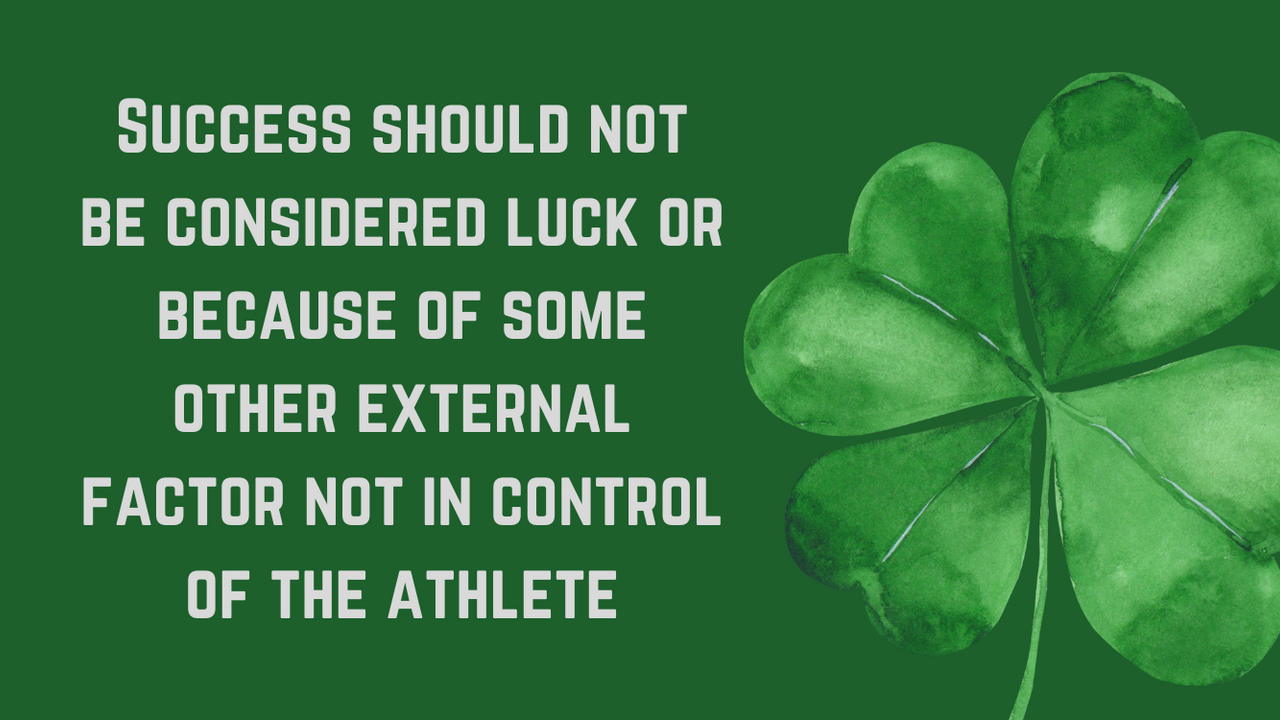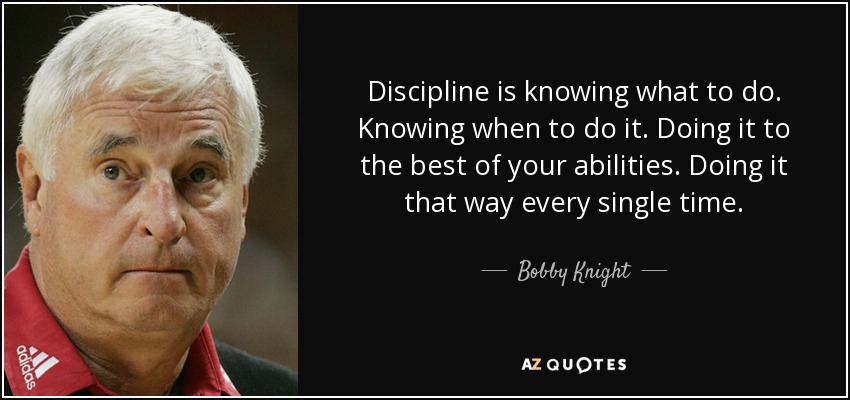
How to Compete and Not Fail with Proper Preparation
Top athletes know how to compete and not fail because of the will to succeed demonstrated by proper preparation and actions. Top athletes know how to compete and not fail because of the will to succeed demonstrated by proper preparation and actions. Learning how to compete must be taught, typically, it is not an automatic response. Competition is an opportunity to succeed, not an opportunity to fail; it is an opportunity to be aggressive and attacking, not a situation in which to be fearful and timid.
UCLA Basketball Coach John Wooden believed competitive greatness is the ability be at your best when it is needed. Athletes should enjoy the thrills, pressures, nerves and emotions of the competition.
You can only control certain factors in your competition and life; control the controllable. Rarely does everything go smoothly in a competition. There are always some bumps along the competitive road, but successful athletes know how to traverse this road.
Confidence isn’t something an athlete simply has; it is something an athlete earns through hard work, discipline, and preparation. As Indiana University basketball coach Bobby Knight used to say, “the will to succeed is important, but what’s more important is the will to prepare”.

Technical Stability in Track and Field
In track and field if the technique of an athlete is stable or consistent, then the outcome or performance can be anticipated with a high rate of accuracy. If technique is unstable or inconsistent, the certainty of the performance is more difficult to predict. Werner (1985) wrote, “Outcomes ascribed to stable causes will be anticipated to be repeated in the future with a greater degree of certainty than are outcomes ascribed to unstable causes” (p. 559).
Success and failure is based on preparation, effort, consistency and athletic ability. Success should not be considered luck or because of some other external factor not in control of the athlete. For coaches, it important to develop internal, controlled, and stable movements in sports.
Athletes will gain self-confidence by understanding their own strengths, watching videos that reinforce their technical skills, daily mental imagery and positive input from the coaching staff.
Top athletes believe in internal control and understand that is success is based on what they can control. Internally orientated athletes believe failure is a result of lack of preparation, poor effort and other controllable factors.
Athletes that think external control is important believe they are not in control of the outcome; success is because of luck or failure is due to an overly difficult task. Athletes that are concerned with external factors rarely succeed and blame others for their lack of progress.
Develop Pre-Competition Routines
A proper pre-competition routine is the first step to optimal performance (Cotterill, Sanders & Collins, 2010).
Establish a pre-competition routine that is followed before every competition
Use a warm-up routine – similar to daily warm up (preference/performance potential)
Use of psychological skills before competition: positive self-talk, mental imagery, mental rehearsal or other methods.
Discuss coaching strategies to be used before competition (encouragement, left alone, no coaching instruction, etc.)
Tips During Competition
Stay focused and in control. Don’t get caught up in your competitors or the competition results; maintain an appropriate level of arousal (emotion). Stay positive and implement the plan of action. Be aware of the competition but focus on yourself.
Think of short, precise action phrases or cues to stay focused on the technical aspects of the event. The competition feedback should focus on a few key points, explained simply, usually under 10 seconds; do not be overanalytical in competition.
Pay attention to controllable factors and not what is out of your control. Think about one technical detail and positive outcomes if executed; eliminate negative thoughts.
- Focus on the one aspect of the technique or event
- Use imagery to reinforce the correct movements
- Reflect on successful competitions (positive experiences)
- Prepare for every detail (controllable and not controllable)
Tips from an Expert Coach and Educator
The first indispensable quality is self-control. If I've learned one thing in sports, it is that before a man ever scales the heights of greatness without, he must first of all control himself within. Most of the great champions of the world learn to hold their emotions in check; they have a certain amount of emotional stability.
Secondly you must use your mind. I've found that in the sports world that there is a lot more to it than the body, that at least 50% of success depends on the mind: what you think, your goals, your faith, your determination, and the creative imagination of your mind.
Thirdly, you just can't be discouraged. How many great champions, at one time or another, have been discouraged? I have never talked to a champion who hasn't told me that at one time he was ready to give up, that he had reached a point where he just couldn't see his way out, and in disappointment and disillusionment he was just about to quit - when suddenly he reasserted his faith in himself and in what he could do and went on to accomplish some great things.
Jeffery Huber: Applying Educational Psychology in Coaching Athletics








